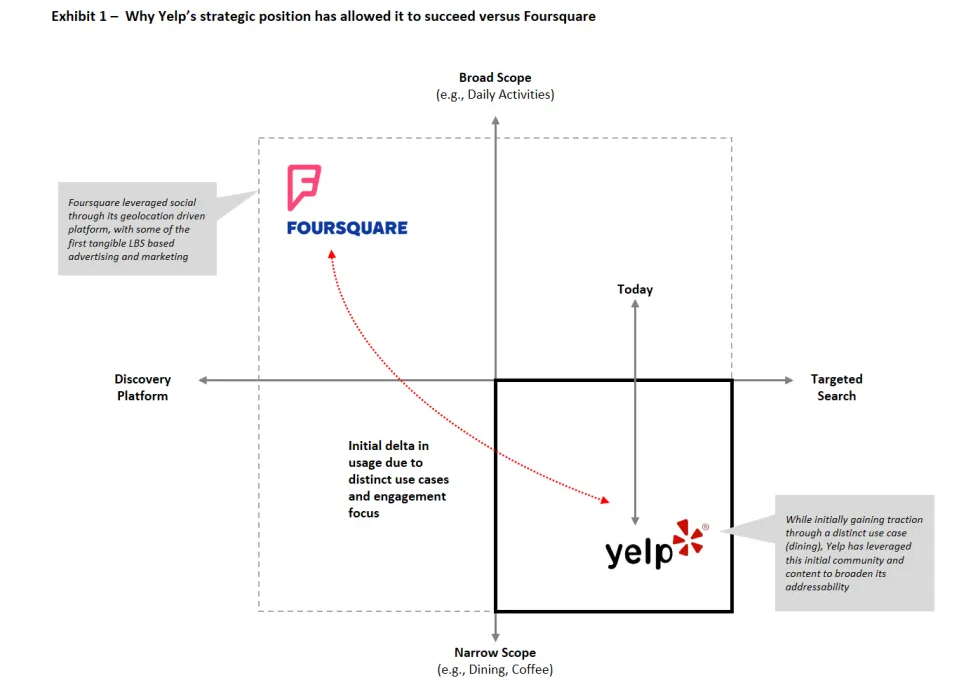ABSTRACT: Through the convergence of location based services, mobile connectivity and devices, and social engagement, application platforms have grown to address the needs of users seeking new local activities, restaurants, coffee, drinks, and dining options. Two platforms that have been at the forefront of this evolution are Yelp and Foursquare.
However, Yelp’s distinct success across engagement metrics, unique users, and brand resonance have garnered questions of why Foursquare has been unable to replicate a similar position – this despite leading product investment, innovation (see Marsbot), and leading investors (e.g., Union Square Ventures, Andreessen Horowitz).
While admittedly simplified, one explanation is in the relative strategic positioning of these two platforms. See Exhibit 1. While Foursquare established a leading foothold through a “discovery” modality, premised on an application “push” of interesting and broadly engaging activities (as measured by social activity such as check-ins), Yelp sought to satisfy a much simpler, and arguably, conventional use case: identify and locate discrete dining options that met a specific taste and review threshold, backed by an engaged community (Yelp Elites) that provided both credibility and timely feedback to search users.
Essentially, Foursquare has pursued an ambitious but abstract set of use cases, resulting in consumer confusion. New users may ask a series of questions associated with Foursquare – is it a check-in app? An app to discover things to do? An app for useful tips? Conversely, Yelp launched itself with a narrow and defined use case – an application centered on searching for and reviewing dining venues. Users associate “restaurants and reviews” instantly with Yelp whereas with Foursquare, the definition is vague. Thus, the abstract nature and scope of use cases has hampered Foursquare’s ability to reach the user base, engagement level, and community of Yelp.

While both platforms are meaningful for small and medium size businesses, the success of Yelp has been difficult to replicate. That said, Foursquare has decided to pursue a portfolio strategy and has split functional capabilities across Foursquare (now a review and activity discovery engine), Swarm (a LBS and social check in platform), and the innovative Marsbot (an early AI chat bot that provides customer-profile specific recommendations). In the end, this may be the differentiating strategy that affords the Foursquare team the ability to match or outpace Yelp’s existing platform through new business models (geolocation data monetization) or consumer profiles (a balance between satisfying both the search and the discovery modalities).



